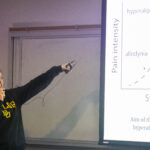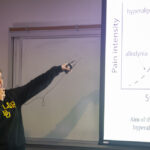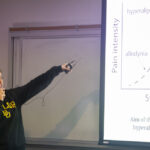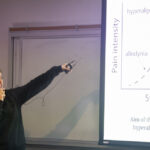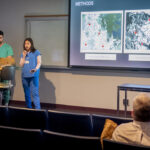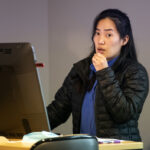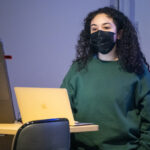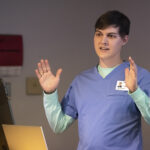Prepping for the national stage
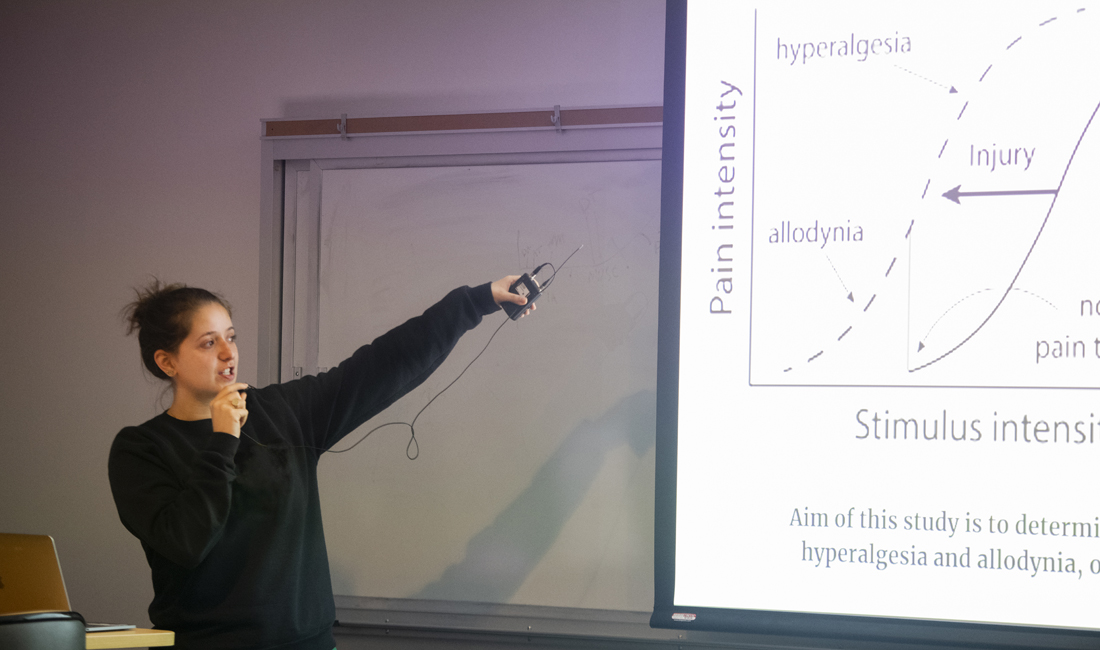
Twelve Texas A&M College of Dentistry students are presenting research projects at the American Association for Dental, Oral and Craniofacial Research meeting March 22-23.
At a recent practice session, a nearly equal number of faculty members offered constructive feedback that helped students polish their presentations. This ranged from broad advice like adding the school’s branding to the title slide to meticulous tips such as adjusting the scale on a result slide or enhancing a graph’s labeling. An alarm sounded if students exceeded their allotted presentation time.
“Many of us, the faculty, have seen and judged presentations at different meetings and have picked up a few tricks here and there over time,” says Dr. Bruno Ruest, associate professor and acting department head of biomedical sciences. “The interaction with the students is important during their preparation, because the refinements help them become more effective presenters with the appropriate visuals.
“At the end, the students look more professional and increase the notoriety of the College of Dentistry and Texas A&M University in dental research. Frankly, the faculty is probably the toughest crowd the students will face. If they can pass with us, it is often easier to impress the audience at a meeting and make us proud.”
Ruest, who is director of student research, understands the ways the summer student research program benefits both investigators and students.
“We may get an extra pair of hands to help generate more data on different projects. Or at the other extreme, student researchers can generate most of the vital data for a publication or generate data into new areas of research that we would not explore otherwise,” he explains. “One of our goals is to interest students in research so that they may one day grow into academic researchers themselves if they become a faculty member at a dental school.
“They may use that knowledge in a different setting like case presentations at a meeting, become attractive candidates into residency programs because of their research experience, or simply understand more the scientific literature so they can better answer questions from patients.”
